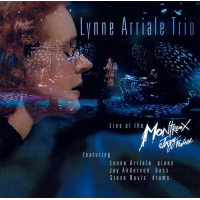Home » Jazz Articles » Album Review » Various Artists: Chicago in Mind
Various Artists: Chicago in Mind
Chicago In Mind is an entertaining collection of songs recorded between 1923 and 1949. Life in Chicago is the subject of many of these tunes, with some nifty piano instrumentals lending variety to the 23-track collection. While the CD provides an overview of early Chicago blues, it also documents the late-‘40s transition period when Muddy Waters, Little Walter, and a handful of other musicians pioneered the electric style of Chicago blues that’s since attracted millions of fans worldwide.
Some contemporary critics have panned early Chicago blues as light entertainment overly influenced by Vaudeville and too disengaged from the emotional lives of the people. It’s true these "race records" often coupled hokum lyrics with jazzy, syncopated melodies. Since this music was most often played at rent parties, the songs frequently dealt with drinking and carousing. But no one who listens to this CD can criticize the musicianship. Moreover, many of the songs truly did communicate the fears and joys of the city’s black populace.
Because many of Chicago’s early blues musicians were rural people who migrated to the big city, their music mixed the down-home with the citified. This dichotomy is evident in Papa Charlie Jackson’s "Maxwell Street Blues" (1925), the first nationally distributed blues 78 by a male singer. The song finds the dapper Jackson strumming a rural-sounding banjo while he pleads with the police to release his girlfriend, who’s been arrested for soliciting at the Sunday street market – a decidedly urban activity. On "Chicago Moan," the guitar great Tampa Red warns, "If you got a good woman/Here’s a lesson I give to you/Don’t carry her to Chicago/Men will take her ‘way from you."
Flamboyant piano players, including boogie-woogie masters Jimmy Blythe, Cow Cow Davenport and Albert Ammons, dominate the earliest songs in this collection. Recorded in 1937, Big Bill Broonzy’s "New Shake ‘Em on Down" foreshadows the modern Chicago blues and even features an electric guitarist. With drums, piano, and Muddy Waters on electric guitar, Little Johnny Jones’ "Big Town Playboy" (1949) presents the full-fledged combo style we recognize as modern Chicago blues. Ironically, this new style was rawer than its Chicago antecedents and thus more faithful to the blues’ Delta roots.
With wonderful performances by various guitarists, pianists, harp players and singers (Ida Cox, Sonny Boy Williamson, Washboard Sam, Sunnyland Slim, Big Maceo, Snooky Prior, Robert Jr. Lockwood, Robert Nighthawk and Little Walter), Chicago In Mind is an excellent sampler of pre-1950 Chicago blues.
Track Listing
Ida Cox - Chicago Bound Blues; Priscilla Stewart - Mecca Flats Blues; Jimmy Blythe
Personnel
Various Artists
variousSee Track Listing
Album information
Title: Chicago in Mind | Year Released: 2000 | Record Label: Catfish Records (UK)
Tags
PREVIOUS / NEXT
Various Artists Concerts
Support All About Jazz
 All About Jazz has been a pillar of jazz since 1995, championing it as an art form and, more importantly, supporting the musicians who make it. Our enduring commitment has made "AAJ" one of the most culturally important websites of its kind, read by hundreds of thousands of fans, musicians and industry figures every month.
All About Jazz has been a pillar of jazz since 1995, championing it as an art form and, more importantly, supporting the musicians who make it. Our enduring commitment has made "AAJ" one of the most culturally important websites of its kind, read by hundreds of thousands of fans, musicians and industry figures every month.




















